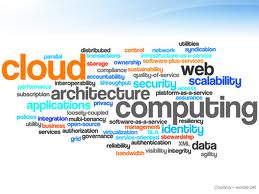CLOUD COMPUTING AND VIRTUALIZATION
cIn the present scenario of changing technology, the IT sector is keen on reducing costs, and improving performance. Innovative use of the advanced techniques is a logical solution, but is very elusive. Data centers need to optimize infrastructure and deploy strategies to improve data center operations. These would enable centers to leverage the benefits of cloud computing and virtualization for their economic benefits.
Cloud computing and virtualization are two relatively similar ideas, but with a whole new horizon. The whole process of implementing the infrastructure requires a lot of detailed discussion about the type of data center and its requirements.
Cloud computing is a scalable platform that is used for the delivery of a service or a capability, to build and run applications over the network. It refers to the IT services that are deconstructed from the underlying infrastructure, and provisioned when needed as well as providing infinite resources to meet the growing demands. It entrusts remote services to the user’s data via computing and networking. The user’s data is stored in a remote location, whereas the end client can access the application through a web browser or a simple mobile app.

Cloud computing fundamentally changes the way IT services are delivered to clients. IT sectors need not concentrate on developing a separate hardware and software encrusted infrastructure for all their servers and storage devices. This would mean that the companies also need to upgrade their servers based on the changing trends. This facility of cloud computing requires neither ownership nor installation of dedicated resources. Cloud computing offers a wide array of benefits:
Reduced cost: Reduction in the cost is definitely an added advantage to any data center operative. The organization would have to invest only in the required capacity and not on unnecessary infrastructure and maximum capacity.
Flexibility: A data center always needs to forecast its future requirements. It needs to be well equipped to situations of migration and need of excess workload. Cloud computing eliminates these undesirable consequences.
Location independence: As cloud computing does not use a physical infrastructure, users can access any application irrespective of their location or the device they are using.
Scalability: A major problem that data centers incur is the expansion plan. Cloud computing offers “on demand” services without having to look for onsite resources.
Security: Access to the log audits is very difficult, hence ensuring security to the data stored. Since the data is distributed over a widespread area and relying on multi-tenants, concern over data loss is relatively minimized.
Maintenance: Maintenance of cloud computing applications is simpler as it does not involve installing applications on every user’s device. It can be accessed from any location.
Server virtualization refers to the servers and data storage devices that are simulated using software. It is the division or segregation of servers. Every single virtual server runs on its own and as a part of another physical server. Many virtual servers can run on a single physical server. These virtual servers can be isolated and can be handled singly, even away from the physical servers.
Through virtualization, you can install a software only once and be rest assured that everyone will have access to it. You don’t need multiple licences to make the software available to all your employees. Since you are technically installing it only on one system, you are not violating any laws either. Same is true with storage. This technique avoids the need for data replication, thus saving storage space.
Virtualization can bring higher utilization, better security and easier management.
Server utilization can definitely bring in some great amount of flexibility and energy efficiency into data centers.
Data Center Talk updates its resources everyday. Visit us to know of the latest technology and standards from the data center world.
Please leave your views and comments on DCT Forum

